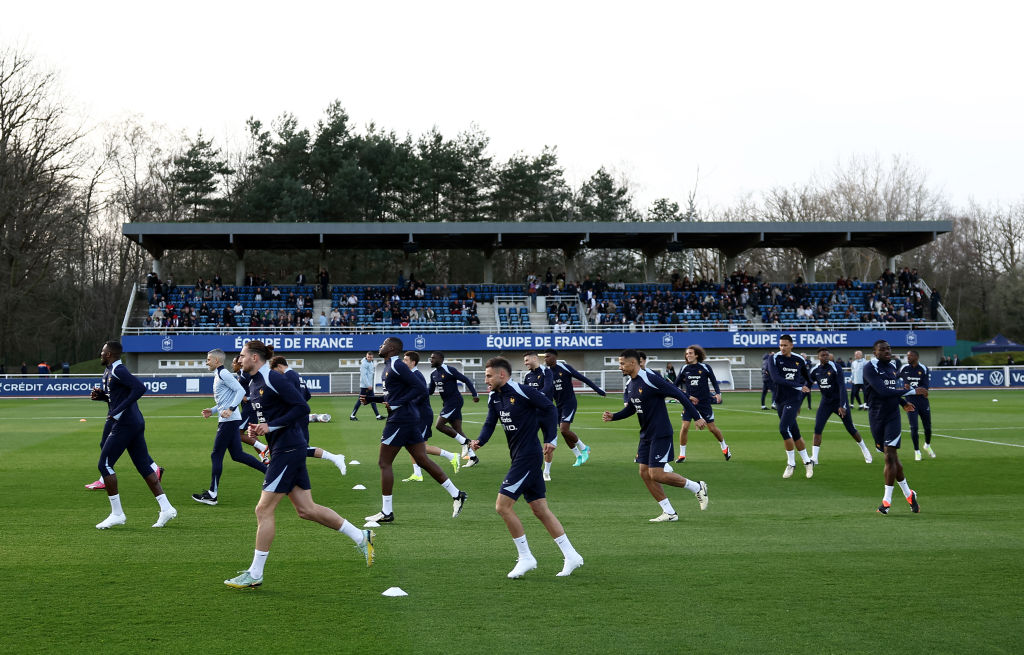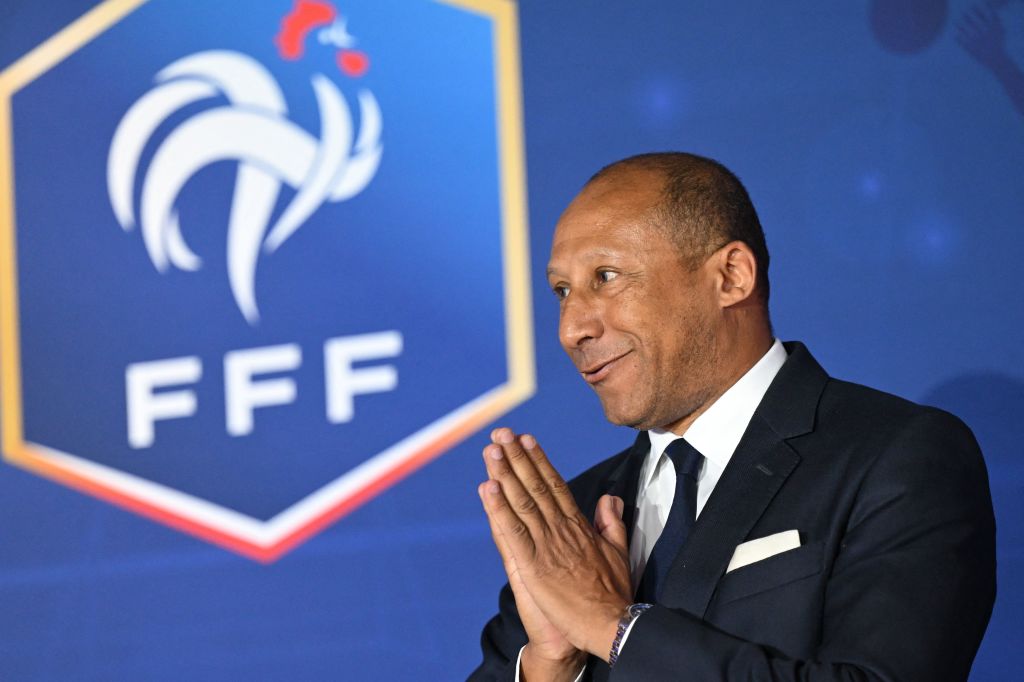
France’s governing body for soccer, the French Football Federation (FFF), has sparked fresh controversy over a reported policy that apparently prohibits Muslim athletes from fasting while at the national team’s training camp during the Islamic holy month of Ramadan in the name of maintaining strict secularism, or the French legal principle of laïcité, which has long fomented broader tensions in French society.
“France continues to be champions of anti-Muslim behaviour,” Canadian sports journalist and advocate Shireen Ahmed reacted on X. “Such wonderful displays of spirit of sport from the upcoming Olympic hosts.”
It’s not the first time the FFF has landed in hot water over moves it claims are meant to enforce religious neutrality but have been criticized as anti-Muslim in a country where an estimated 10% of the population practice the faith.
The new policy, according to media reports this week, states that team meetings, group meals, and training sessions for the French senior and youth national soccer teams will not be modified on account of any player’s religion and that players who observe Ramadan, the Islamic holy month of fasting and worship that runs this year from March 11 to April 10, will not be permitted to fast while at the Clairefontaine training base—they are told they can make up for missed fasting days after the current period of international practice and competition is finished. Last year, a similar directive ostensibly with health and performance in mind was reportedly given by staff for Les Bleus, the team’s nickname, as a recommendation but not a rule.
Already, in response to the fasting ban, youth midfielder Mahamadou Diawara has left the French men’s under-19 squad, ESPN reported on Thursday. “Some players are not happy with this decision,” an agent who represents several players for the youth and senior French teams anonymously told ESPN. “Some don’t want to cause a fuss,” the agent added, but “they believe that their religion is not respected and that they are not respected either.”
FFF has not responded to TIME’s request for comment. But earlier this week, federation president Philippe Diallo defended the federation’s approach to Ramadan in an interview with French newspaper Le Figaro, saying: “There is no stigmatization of anyone, there is absolute respect for everyone’s convictions. But when we are in the French team, we must respect a framework.”
Diallo referred to Article 1 of the federation’s founding statute, which he says ensures respect for the “principle of neutrality.” Under the article, “any speech or display of a political, ideological, religious or trade-union nature” is forbidden in competitions and events, with violators subject to “disciplinary and/or criminal proceedings.”

The FFF has come under fire before for failing to accommodate Muslim players and even forcing them to violate their religious principles.
It was embroiled in controversy last year after an email leaked in which referees for the country’s domestic professional league were ordered not to briefly pause matches at sunset during Ramadan so fasting players could hydrate and eat a snack pitchside. “A football field, a stadium, a gymnasium, are not places of political or religious expression, they are places of neutrality where values of sport, such as equality, fraternity, impartiality, learning to respect the referee, oneself, and others, must prevail,” the email reportedly said, adding that there would be disciplinary consequences for referees who did not comply. The FFF’s order stood in stark contrast to the French league’s counterparts around the world, including the English Premier League, Germany’s Bundesliga, and the Dutch Eredivisie, where match officials have permitted such momentary pauses in play to accommodate Muslim players.
Amid backlash, during a game on April 2, a Paris Saint-Germain fan group held up a sign that read: “A date, a glass of water, the nightmare of the FFF.”
Also last year, the Council of State, France’s supreme court for administrative laws, upheld the FFF’s ban on women players wearing hijabs, which had been appealed by a collective of Muslim players and human rights advocates who claimed that such a ban was discriminatory. The court, however, ruled that “sports federations, responsible for ensuring the proper functioning of the public service whose management is entrusted to them, can impose on their players an obligation of neutrality of outfits during competitions and sporting events in order to guarantee the smooth running of matches and prevent any confrontation.” It declared the FFF’s hijab ban, despite FIFA lifting a similar rule years earlier, to be an “appropriate and proportionate” measure.
France’s sports minister announced a similar prohibition on French athletes wearing headscarves during the upcoming Olympics, set to take place in Paris from July 26 to Aug. 11, drawing widespread condemnation. A spokesperson for the United Nations High Commission for Human Rights slammed the ban, saying: “Restrictions of expressions of religions or beliefs such as attire choices are only acceptable under really specific circumstances that address legitimate concerns for public safety, public order or public health or morals.”
In response to news of the FFF’s recent Ramadan rule, the Everything Is Futbol podcast posted on X: “Muslim players for France should sit out the national team until they reverse their decision.”
“You’ll see how quickly France changes its ways once they realize they can’t field a good national team without multiple dual citizen French/African athletes,” the post added, referring to the fact that Les Bleus has historically been bolstered by African and Arab migrants and children of migrants. “Muslim players have been and will continue to be a vital part of France’s success.”
More Must-Reads from TIME
- L.A. Fires Show Reality of 1.5°C of Warming
- Home Losses From L.A. Fires Hasten ‘An Uninsurable Future’
- The Women Refusing to Participate in Trump’s Economy
- Bad Bunny On Heartbreak and New Album
- How to Dress Warmly for Cold Weather
- We’re Lucky to Have Been Alive in the Age of David Lynch
- The Motivational Trick That Makes You Exercise Harder
- Column: No One Won The War in Gaza
Contact us at letters@time.com